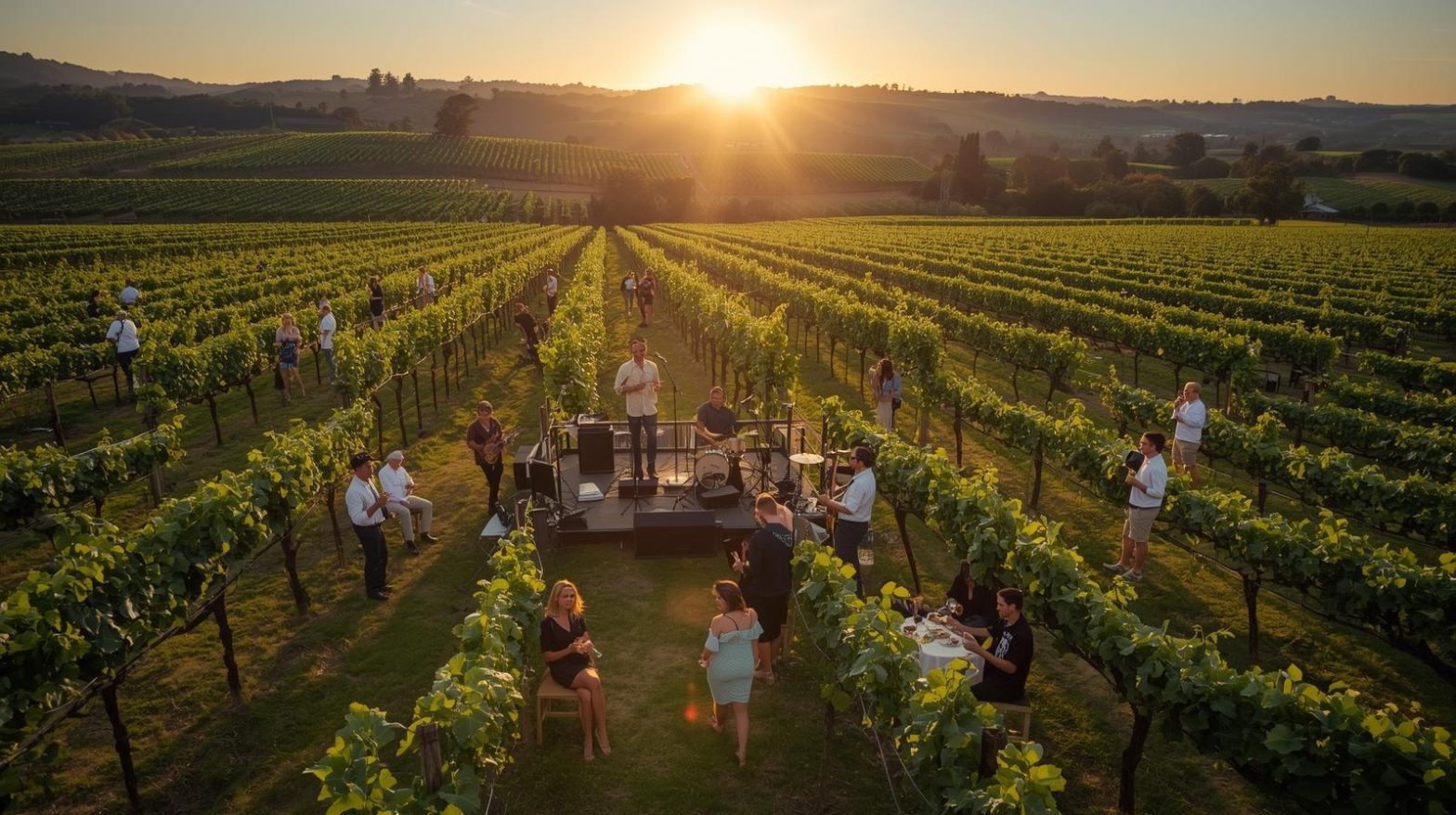🍇 Event Management in Vineyards: An Economic Reality to Leverage 🍇

Rules regarding ERP (Public Access Buildings) are essential to follow.
Safety, accessibility, and compliance are at the heart of your event projects.
Wine estates are becoming true places of life and hospitality for wine tourism. From concerts and tastings to weddings and corporate events, visitor numbers are increasing.
However, opening to the public carries real legal and regulatory responsibilities: compliance with regulations related to Public Access Buildings (ERP) is mandatory.
🏛️ ERP Classification: A Question of Capacity
ERP classification determines the rules to follow depending on the number of people hosted.
In vineyards, it concerns tasting rooms, cellars open to the public, or event spaces.
-
Category 1: over 1,500 people
-
Category 2: 701 to 1,500 people
-
Category 3: 301 to 700 people
-
Category 4: up to 300 people
-
Category 5: small establishments hosting a limited number of people (varies by activity)
👉 Most wine estates hosting events fall into Category 4 or 5, but some festivals may fall under Category 3.
🔒 Key Obligations for Regulatory Compliance
ERP regulations focus on two main areas: safety and accessibility.
✔️ Fire Safety: The PPRIF is the primary authority. Depending on the site classification, all projects may be prescribed. The fire safety commission approves the site, including emergency exits, signage, alarm systems, fire extinguishers, and compliant building materials.
✔️ Accessibility for Persons with Reduced Mobility (PRM): access ramps, door widths, adapted restrooms, obstacle-free circulation.
✔️ Technical Inspections: several areas must be verified (electricity, gas, asbestos, accessibility, fire safety, restrooms, water quality, etc.)
✔️ Authorization to Open: a mandatory review by the safety commission is required before any public opening.
⚠️ Risks of Non-Compliance
Ignoring ERP regulations can have serious consequences:
-
🚫 Refusal to open or administrative closure
-
💸 Financial penalties (fines, emergency compliance costs)
-
⚖️ Criminal liability for the owner or operator in case of an accident
-
❌ Loss of credibility and attractiveness for organizers and visitors
🍇 Practical Advice from Vinea Transaction
With our experience in transactions and heritage consulting, here are a few recommendations:
-
Have the site and premises inspected by a safety/ERP professional (contact Vinea Transaction)
-
Anticipate new activities (tasting rooms, lodging, group hosting)
-
Keep the safety register up to date (mandatory document maintained by the operator, recording all inspections, works, and safety/accessibility measures)
-
Contact the Town Hall and fire services to declare the establishment or planned developments
👉 Is your acquisition project related to event activities in a wine estate?
Let’s discuss it now!
The Vinea Transaction Team 🍷✨
